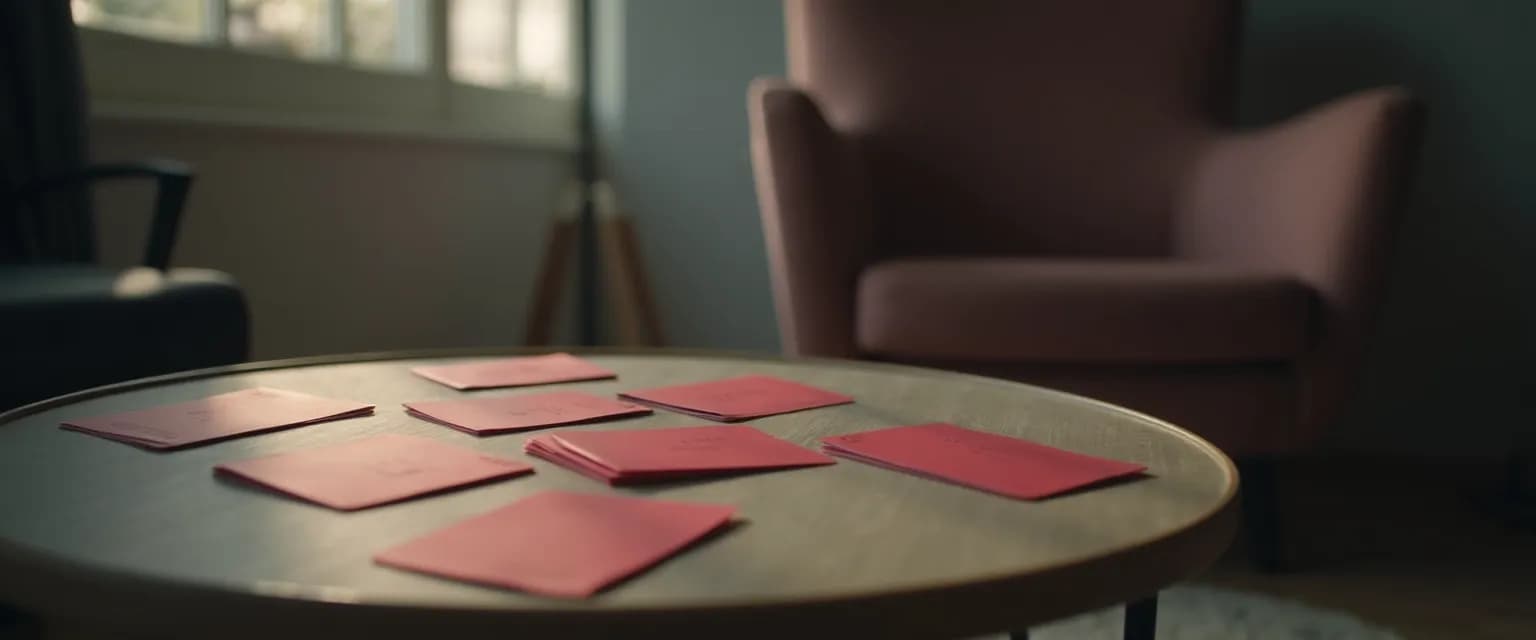Can 'We're Not Really Strangers Breakup Edition' Cards Help Emotional Healing?
Let's face it: breakups can feel like emotional earthquakes, shaking our foundations and leaving us wondering how to rebuild. Enter the we're not really strangers breakup edition cards – a trending tool designed to help navigate the choppy waters of heartbreak. This card deck has gained massive popularity as people search for accessible ways to process relationship endings outside traditional therapy settings. The carefully crafted questions prompt reflection, emotional expression, and potentially, healing. But the million-dollar question remains: can a deck of cards truly replace or complement professional therapy for processing relationship grief? Let's explore this intriguing intersection of emotional wellness tools and traditional therapeutic approaches.
The we're not really strangers breakup edition represents our growing desire for accessible emotional processing tools. In a world where therapy can be expensive, time-consuming, or simply intimidating, many are turning to alternative methods for working through complicated feelings. This exploration isn't about dismissing professional help but rather understanding the full spectrum of resources available for emotional healing.
How We're Not Really Strangers Breakup Edition Cards Work for Emotional Processing
The we're not really strangers breakup edition deck contains thoughtfully designed questions that guide users through various stages of breakup recovery. Unlike casual conversation, these cards create a structured environment for exploring difficult emotions. Questions range from "What was the moment you knew it was over?" to "What have you learned about yourself through this loss?" – prompting deeper reflection than everyday discussions might allow.
What makes the we're not really strangers breakup edition particularly effective is how it creates psychological safety. When answering card prompts, people often feel permission to express thoughts they might otherwise keep bottled up. This aligns with research showing that structured question-asking can facilitate emotional processing and reduce rumination – that endless loop of painful thoughts that often accompanies breakups.
Many users report breakthrough moments while using the cards, especially when played with trusted friends. One user described how a card asking about lessons learned helped her recognize patterns across relationships, something she hadn't spotted despite months of private reflection. The social element of the we're not really strangers breakup edition adds another dimension that solo emotional growth exercises might miss.
We're Not Really Strangers Breakup Edition vs. Traditional Therapy: A Balanced View
While the we're not really strangers breakup edition offers valuable tools for emotional exploration, it differs fundamentally from therapy in several ways. Professional therapists bring clinical expertise, can identify underlying mental health concerns, and provide evidence-based interventions tailored to individual needs. They're trained to notice patterns you might miss and guide you through more complex emotional terrain.
However, the we're not really strangers breakup edition shines in accessibility. At a fraction of therapy's cost, these cards can be used anytime, anywhere, and as frequently as needed. They also normalize the breakup experience by creating shared language around heartbreak. Many find the cards less intimidating than sitting across from a professional, making emotional processing feel more like self-discovery than treatment.
Rather than viewing these approaches as competitors, consider them complementary tools in your emotional wellness toolkit. Many therapists actually incorporate card games and prompts similar to the we're not really strangers breakup edition in their sessions. The cards might help you identify areas worth exploring more deeply in therapy, while therapeutic insights can enrich your card experience. This integrated approach to managing difficult emotions often yields the most profound healing.
Making the Most of We're Not Really Strangers Breakup Edition for Your Healing Journey
To maximize benefits from the we're not really strangers breakup edition, approach the cards with openness and patience. Set aside dedicated time in a comfortable environment, and consider whether you prefer exploring alone or with supportive friends. Remember that emotional healing isn't linear – some cards might feel easy one day and impossible the next.
The we're not really strangers breakup edition works best when incorporated into a holistic approach to breakup recovery. Pair card sessions with physical movement, adequate rest, and social connection. Notice when certain questions consistently provoke intense reactions – these areas might benefit from additional support through therapy or other resources.
Ultimately, whether the we're not really strangers breakup edition is sufficient depends on your unique situation. For processing uncomplicated breakups and gaining personal insights, the cards can be remarkably effective. For breakups complicated by trauma, abuse, or pre-existing mental health conditions, the cards work best as a supplement to professional support. Trust your experience – healing after a relationship ends is deeply personal, and the right tools are the ones that work for you.




